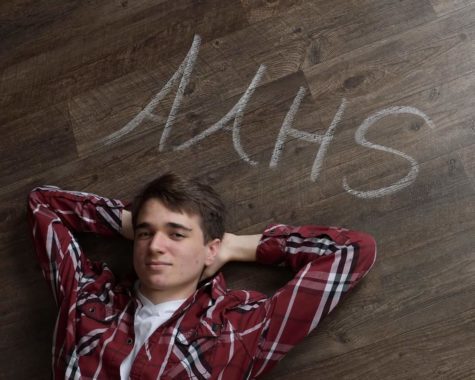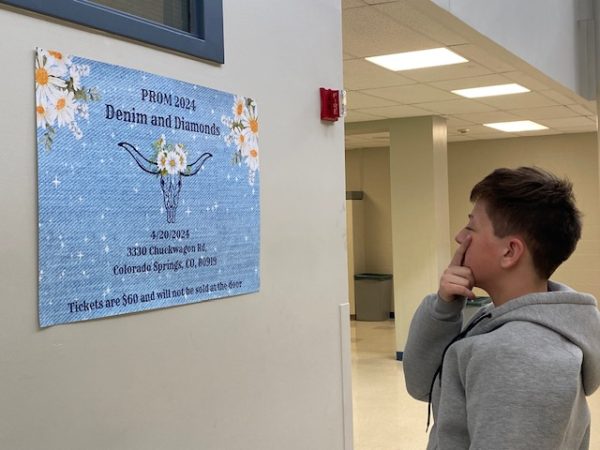The Millennial Paradox: Are We Desensitized or Overly Sensitive?
Note: for the sake of brevity, we will use the term millennial as an umbrella term including both Generation Y and Generation Z.
The year is 1986; all the children in class are gathered around the television.
Static-ridden images turning hopefully toward the stars are reflected onto the eager faces of the children. The country is overwhelmed with anticipation for the launch of the space shuttle Challenger, and the teachers are displaying it live in front of all the elementary school students.
The rocket takes off and soars through the air, triumphantly taking us further into the unknown–until, suddenly, the shuttle explodes, killing every person inside. The children are in hysterics, and the nation weeps for the unexpected loss of humanity’s bravest explorers.
From our modern perspective the scene seems strange, outlandish even. And it’s not just the clunky television and gaudy antennae that looks more like a part of a Star Trek gadget than anything else. Our world has changed, and how we view tragedy has changed too.
It’s now common-place to see students watching the news; images of violence and horrors streaked across the television screen. Students may express discomfort, but they’re not crying. They’ll watch the scene in awe, say “how tragic,” and move on. After all, they’ve seen it all before.
This reality may seem difficult to amend with our perception of “snowflake” millennials as delicate and fragile. It seems strange that the same generation that makes national news for retreating into safe spaces–full of coloring books and puppies–also stares unflinching at hours of violence and sexual promiscuity on Netflix.
So, how do we define the simultaneous desensitization and sensitivity of these younger generations and what does it have to say about us?
However, before we delve into the subject of millennials’ sense of empathy and sensitivity, we must first define who exactly the millennials are.
While it’s true that millennials, or any generation for that matter, are a diverse group of people with varying views and ideas, we all share certain experiences and historical backgrounds.
History teacher Ronald Gorr believes that to fully understand a generation, we have to understand the generation that raised them, and the values they instilled in their children.
Gorr took us through a brief history from the hard-working Silent Generation, who fought in World War II, to the Gen Xers who would go on to raise Generation Z and the millennials.
“My mom is a baby-boomer,” Gorr explained. “Their parents fought in WW2, maybe one of the most celebrated victories in American history. Serving, celebrating, and winning is what they did. The next generation signed up for Korea and Vietnam…they came home [and] got spit on. Then they came back and they had kids. That’s [millennials’] parents. What are they going to think of war?”
Indeed, a Harvard poll cited in USA Today reported that millennials tend to be extremely cynical of government and national institutions. The poll found that a whopping 83 percent of 18-29 year olds had no faith in the US Congress to address the nation’s issues. Clearly this cynicism was passed down from their parents who witnessed the drain of controversial wars.
Gorr elaborated that Generation X was a generation forged in contradiction and uncertainty. They lost faith in their government only to later have their patriotism renewed and re-invigorated by the Reagan administration.
“Kennedy, who we all love, gets killed. Bobby, who we love, gets killed. Nixon, found out to be a criminal. Then, Ford comes in and pardons Nixon. Then, we get a peanut farmer who gets us into one of the worst economic periods in the history of our country…Reagan comes in, flexes his muscles and…gives us a common enemy. Those 80s parents have all this working… the patriotism of Reagan which we see in the right today and the questioning of the left, which is the: ‘What did Nixon do?'” he said.
Millennials are in an interesting position demographically. They were raised by parents who witnessed the evolution of social rights, who were torn between the reform of a changing system and the return to tradition.
They grew up in a post 9/11 world, a world marred by a war on terror, a world many labeled as post-racial, past discrimination.
They experienced the 2008 stock-market crash as children and quickly became disillusioned with fame and fortune. According to a study for Brookings by Morley Winograd and Dr. Michael Hais, “64 percent of Millennials said they would rather make $40,000 a year at a job they love than $100,000 a year at a job they think is boring.”
But, on top of all this, millennials experienced the dot-com boom head on. They witnessed the internet explode and media infiltrate every screen.
Desensitization is nothing unique to millennials; but, with increased media access, it seems inevitable.
It’s no secret that younger generations are much more reliant on media than ever before. Millennials and Gen Z were the first generations to be born with social media as a prominent figure in their lives, and society is still learning how to cope with this new factor.
Younger people, due to technology, are suffering from an absence of emotion. For example, many people are discussing the lack of empathy in the youth due to lower amounts of human connection. According to a study by the University of Michigan, empathy radically dropped in the year 2000, and “college kids today are about 40 percent lower in empathy than their counterparts of 20 or 30 years ago.”
“Because social media kinda takes away face-to-face conversations, our generation has a much harder time feeling empathy and understanding facial cues,” said Gorr.
The growing concern of communication via technology has expanded throughout the years, as children have very noticeable differences when it comes to human relationships, including the ability to avoid mistakes. In a face-to-face conversation, everyone runs the risk of tripping over their words, or saying something they didn’t mean. In a virtual conversation, however, a person is able to rewrite their statement over and over, dehumanizing their words with every edit.
In her Ted Talk “Connected, but Alone?” Sherry Turkle says, Human relationships are rich, and they’re messy, and they’re demanding, and we clean them up with technology. And when we do, one of the things that can happen is that we sacrifice conversation for mere connection.”
Sherry’s ending claim is a rising problem with the younger generation. More and more people are beginning to take notice of the fact that while they’re in the same room as someone else, they’re not really connecting with them in any meaningful way.
One of the biological components of empathy is a lack of oxytocin, otherwise known as the “cuddle” or “love” hormone. Studies have shown that when parents touch and cuddle with their children, oxytocin is released within the brain, which will strongly affect the outcome of their future. A big difference in children who receive physical attention and those who don’t is empathy, and bonding with other individuals.
Touch has gained somewhat of a negative reputation in modern America, there are elementary schools and day care programs that outright ban children touching each other altogether.
There have been events even going as far as the Girl Scouts condemning parents for making their kids show affection.Thankfully, society has taken notice of and is trying to remedy the issue, even AAHS has its teachers exchange handshakes or fist-bumps with their students before class.
Calling back to technology, younger generations tend to see much more violent and graphic content than in the past. In 1992, SEGA released a game titled Night Trap, which received criticism for its vulgar nature. Many people were outraged by it scenes, which they feared would corrupt the minds of their children. The most graphic scene within the game was a mild image of a woman in her bathrobe.
Nowadays, the media displays genocide, pornography, and murder every day. The constant bombardment of information makes it hard for this generation to emotionally comprehend the magnitude of all this information.
“They process quicker, which means they have to decide how they feel quicker…think about how quickly we need to form an opinion now. Maybe we don’t emotionally process as well as we should. The argument is maybe time would help us process better,” Gorr explained.
Yet, this is where contradiction begins to arise because millennials are not only a generation of desensitization, but also a generation of deep emotion and sensitivity, to the point of ridicule.
“We as a generation have learned to accept more… to tolerate,” Gorr stated.
As to the reasons behind millennial sensitivity, it seems that the technology plays a big role. Ironically, the same medium that exposes us to unrelenting violence and tragic news also exposes us to people of all different walks of life.
Senior Emmy Hendricks stated, “[Despite its downfalls], technology allows us to reach so many people and quickly so it’s a very good thing.”
Growing up in the media age, millennials live in a world that feels much smaller than that of previous generations. It has become practically impossible to exclusively exist in our little, isolated bubbles anymore.
“[Due to the] explosion of the internet…you’re exposed to a lot more culture, ideologies,” explained senior Sam Brooks.
Indeed, many millennials have had access to the internet since they were little kids. In turn, they tend to be more comfortable with different cultures and global ideas that may seem unfamiliar and foreign to older generations.
Furthermore, millennials are the most active generation on social media. They are fluent in the language of the virtual world. Therefore, they are constantly connected to people from all around the globe and have to think about how actions affect others, others that previously weren’t in their scope
But, it’s not just the scope of media that has changed, its purpose has warped as well.
If Generation X was the generation of reality TV stars with Colgate-ad smiles, then the millennials are the reaction against that lack of authenticity. Millennials seem to turn to media less and less as an escape and more and more as a conduit for representation and commentary on current events.
Senior Natalie Hummel said, “You used to not be able to talk about anything on TV and now, there’s that shock factor in Hollywood. Because of [this] people have been exposed to a lot of issues that were not talked about. For example, there’s gay people on TV shows. That never would have happened 50 years ago.”
“What the younger people see on TV is…what they view as normal and acceptable,” said Brooks.
This creates a cycle. The more representation of social issues millennials see on TV, the more cognizant they become of these issues, and the more they demand to see these issues addressed in media.
Social and political issues are increasing hard to ignore. Everything is politicized. As a result, we expect media to deliver a message. Biased is the new unbiased.
Perhaps millennials are obsessed with the glaring yet subtle problems in this modern world, a world that many label as post-racial, beyond mass discrimination and cruelty. Perhaps they feel that minority voices need to be heard and flaws in the system exposed to shatter this utopian illusion. Perhaps this is why we allow polarized politics to seep into every aspect of our society.
This idea embodies the millennial philosophy: simultaneously cynical and hopeful.
So, it is true that younger generations are more aware of, and–as a result–care deeply about social issues. But, this can definitely be taken too far.
“Triggered millennials,” “coddled college students,” all these phrases paint a negative image of a raging, over-sensitive youth. But, this can be considered a symptom of something positive: the widening of world views, people looking legitimately beyond themselves, keeping a political pulse, and considering what may be offensive to others of completely different backgrounds.
Now, none of this is meant to portray millennials as the “savior generation” that will rid the world of all evil; neither is it intended to portray millennials as selfish, technology-obsessed, cry-babies. Both of these images are far too cliché for our liking.
I think what we have discovered is that each of us is simultaneously desensitized and extremely sensitive, cynical and accepting. We are a generation defined by contradictions: call it hypocrisy or humanity.

Hi! I'm Hillary; but, I go by Hill, Larry or anything in between. As a senior with a serious height deficiency, I won't take it too personally if you think...

Hello. I'm Michael Boe, and this is my second year writing for the JetStream Journal. I'm an author and I love to write articles that offer new ideas or...
















